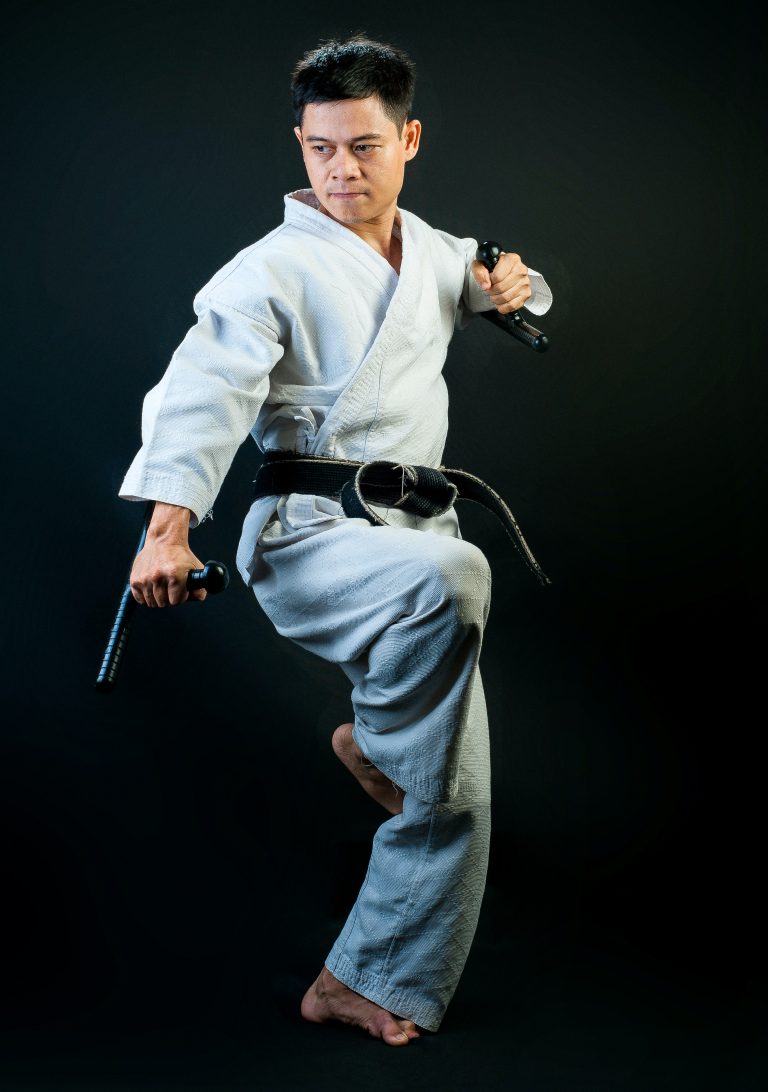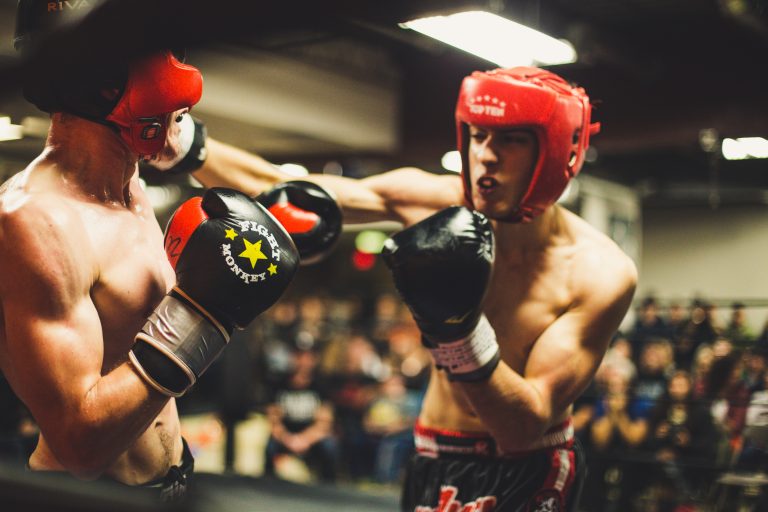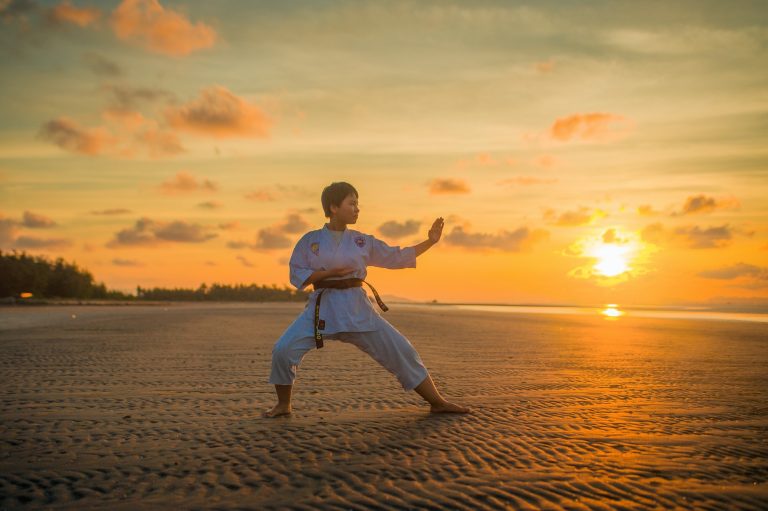Karate: How Dangerous is it for Beginners?
Karate is a martial art that originated in Japan in the early 20th century. It is practiced by people all around the world and is considered one of the most powerful forms of self-defense. However, like any sport or physical activity, there are dangers associated with practicing karate, especially for beginners.
Physical injury risks
One of the main concerns for beginners in karate is the risk of physical injury. The movements in karate can be very powerful and fast, which can lead to strains, sprains, and even broken bones. It is important to start slowly and carefully when practicing and always listen to your body. Warming up and stretching before each session is also essential to prevent injury.
Concussions and head injuries
Another major concern in karate is the risk of concussions and other head injuries. This is because karate involves a lot of striking and blocking movements, which can sometimes result in blows to the head. Beginner students who are still learning proper techniques may be more prone to head injuries. It is important to use proper protective gear and practice under the supervision of a qualified instructor to minimize this risk.
Emotional stress
Learning karate can also be emotionally challenging for beginners. The pressure to perform perfectly and fear of injury can take a toll on mental health. It is important for beginner students to take breaks when needed and communicate with their instructors about any worries or concerns they have.
Conclusion
Overall, practicing karate can be a great way to stay physically and mentally fit. However, like any physical activity, there are risks associated with it. Beginners in karate should be aware of these risks and take precautions to minimize them. Remember to always warm-up, use proper protective gear, communicate with your instructor, and listen to your body. With the right mindset and preparation, karate can be a safe and rewarding experience for beginners and experts alike.
FAQs About Karate: How Dangerous Is It for Beginners?
Karate is a martial art that originated in Okinawa, Japan, and has gained worldwide popularity due to its amazing health benefits and self-defense techniques. Many people, however, may hesitate to learn karate due to concerns over potential dangers for beginners. Here are the most frequently asked questions about the topic:
1. Is Karate dangerous for beginners?
Karate is a contact sport and any physical activity that involves throwing, hitting or kicking can be potentially dangerous. However, karate instructors always prioritize the safety of their students, especially beginners. As a beginner, you would be taught basic moves and techniques that gradually progress as you improve, and are less likely to encounter dangerous situations. Karate can be dangerous for beginners if proper instructions and supervision are not provided, or if beginners attempt more advanced techniques without proper training or supervision. Ultimately, the key to staying safe in karate is to only practice in a controlled environment with experienced instructors, and to start with basic moves and techniques.
2. Do I need to be physically fit to begin Karate?
Karate is seen as one of the best ways to improve overall health and fitness, but you don’t need to be in top physical shape to start practicing karate. Karate classes are tailored for all levels of fitness, and instructors will help you adjust to the physical demands of the sport. In addition, practicing karate consistently can help you improve your physical condition over time by building strength, endurance, balance, and flexibility.
3. Can Karate lead to injuries?
As with all martial arts, there is always a risk of injury in karate. However, by practicing in a controlled environment with experienced instructors, injuries can be minimized. Injuries may occur during sparring or competition, but these risks are largely avoided in beginner classes. While karate can lead to injuries, the benefits of practicing karate often outweigh the minor injuries that may occur. Over time, your body will build a tolerance to the physical demands of the sport, and you will become less likely to experience injuries.
4. How long does it take to become proficient in Karate?
The time it takes to become proficient in karate varies from person to person, depending on factors such as frequency of practice, dedication to training, and natural ability. With consistent practice, most people progress through the beginner and intermediate levels in about two to four years. Becoming a black belt, the highest rank in karate, can take anywhere from five to ten years or more. Nevertheless, it’s important to stay committed to the training process, remain patient, and avoid setting unrealistic goals.
5. Should I wear protection while practicing karate?
Yes, wearing protective gear such as hand pads, shin guards, and head guards is very important during karate practice. It protects you from injuries that may occur while practicing, especially while sparring. Without proper protective gear, you risk injuring yourself or your partner, which can lead to serious and long-term injuries. Therefore, always make sure to wear the recommended protective gear during your karate training sessions.
6. Can Karate be used for self-defense?
Yes, karate can be used for self-defense, especially if you know the fundamentals of the martial art. Practicing karate can improve your reaction time, speed, coordination, accuracy, and power, which are all essential skills for self-defense. In addition, by consistently practicing karate, you will develop the confidence necessary to defend yourself in emergency situations. Karate not only equips you with the physical skills necessary for self-defense but also the mental skills needed to remain calm and collected in a potentially dangerous situation.
7. Is it possible to learn Karate by myself?
While it’s possible to learn some of the basic moves and techniques through instructional books or videos, learning karate by yourself is not recommended. Karate involves complex movements and techniques that require hands-on instruction, feedback, and correction from experienced instructors. Learning karate by yourself can result in the development of bad habits, incorrect techniques, and possible injuries. Therefore, it’s highly recommended to learn karate from qualified instructors to ensure you receive the proper training and guidance.
In conclusion, karate can be a safe and enjoyable sport for beginners if proper instructions, supervision, and protective gear are provided. With consistent practice and dedication, the rewards of practicing karate can be endless, including improved physical fitness, self-defense skills, and mental alertness. Always remember to train safely and with qualified instructors, and focus on continuous improvement over time to become an accomplished karate practitioner.
Inhaltsverzeichnis






